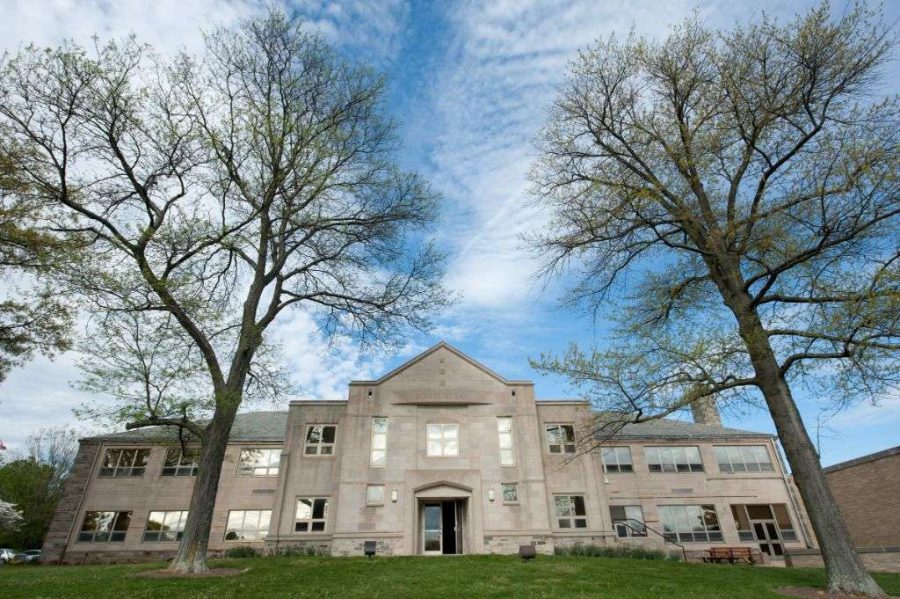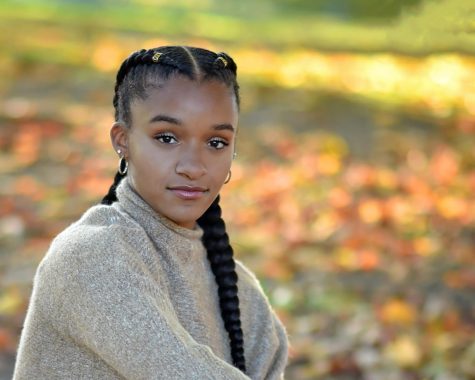Comm. Department Hosts Women In Journalism Panel
Courtesy of Villanova University
The event was hosted in Garey Hall.
February 23, 2022
On Wednesday, Feb. 16, a panel of five female journalists from the Philadelphia area gathered to speak to a room full of students and staff at 5 p.m. in the Garey Café. The panel was facilitated by Michael Bradley, an Assistant Instructor in the Communication Department. The panel included Kate Dailey, deputy managing editor of the Philadelphia Inquirer, Kim Douglas, managing editor of the Main Line Today Magazine, Stephanie Farr, a staff writer for the Philadelphia Inquirer, Dana O’Neil, a senior writer for The Athletic and Elizabeth Wellington, a columnist for the Philadelphia Inquirer.
The room was filled with excited students who were eager to hear from the professionals that made up the panel. Bradley moderated the panel, directing questions towards the women before opening up the floor for questions from students. The women shared stories from their time in the industry, and Bradley’s questions covered topics such as motivation to become a journalist, the best stories the journalists ever covered, how technology has impacted the industry and their jobs and what many students listened intently to: advice for those looking to pursue journalism as a career. Some may be surprised to hear that these professionals did not always want to be journalists. O’Neil elicited polite laughter from the room when she joked, “I tripped into it” regarding how she got into the field.
While they were personable and got laughs from the crowd, the journalists also took on a tone of realism when it came to answering questions about the challenges of being women in such a male dominated field.
“Your margin for error is exactly zero,” O’Neil said regarding women in the industry.
Douglas spoke of growing up primarily around boys and not giving much thought to gender differences and how they affected her. However, things changed when she got into the professional world of journalism.
“Why is it different now that we’re getting a paycheck?” Douglas asked.
Farr admitted that no matter who you are as a journalist, not everyone is going to like you. However, she admitted that “women get it a lot worse than men.” Wellington shared with the crowd that her experience is different from those of the other women on the panel because she is a Black woman. She admitted the beginning of her career as a Black female journalist in the South was not always easy.
“I come from this not only as a woman but as a Black woman,” Wellington said. “Basically everything was hard. If you had a sense of who you were then they thought you were speaking out of place.”
All of the women stressed the importance of knowing one’s goals and priorities within the industry, as well as within one’s personal life. Although they were honest about the struggles of the industry, the women encouraged not only the female students at the event, but everyone in attendance to pursue journalism professionally and to not get discouraged. They gave an array of advice in response to Bradley’s question. Farr’s advice was to take a theater course or two to get comfortable speaking to strangers and putting on a performance, as that is so much of what a journalist’s job consists of. O’Neil emphasized the importance of personal branding.
“People will read you because you’re good, not because you work at some place,” O’Neil said.
Once the Q&A portion of the event ended, the journalists stuck around for students who wished to introduce themselves and talk briefly. When asked how she ended up on the panel, Dailey laughed, saying “Michael Bradley plays golf with my dad.” However, she expressed her gratitude about being invited to the panel and being able to encourage young journalists, calling this “an exciting time in journalism.”
O’Neil expressed her appreciation about being a part of the event as well as towards students’ engaging questions.
“The event is only as good as the audience,” she said.
Students were buzzing with excitement after the event.
“Being a student journalist, the event was reassuring and a reminder of how the world opens to you in this fieldwork,” sophomore Lauryn Hayes said. “The women shared honest and amazing stories that I hope to share one day myself.”
Attendees were grateful to the women of the panel for the honesty they offered while simultaneously encouraging all students, but specifically women, to pursue careers confidently and excitedly in journalism.



